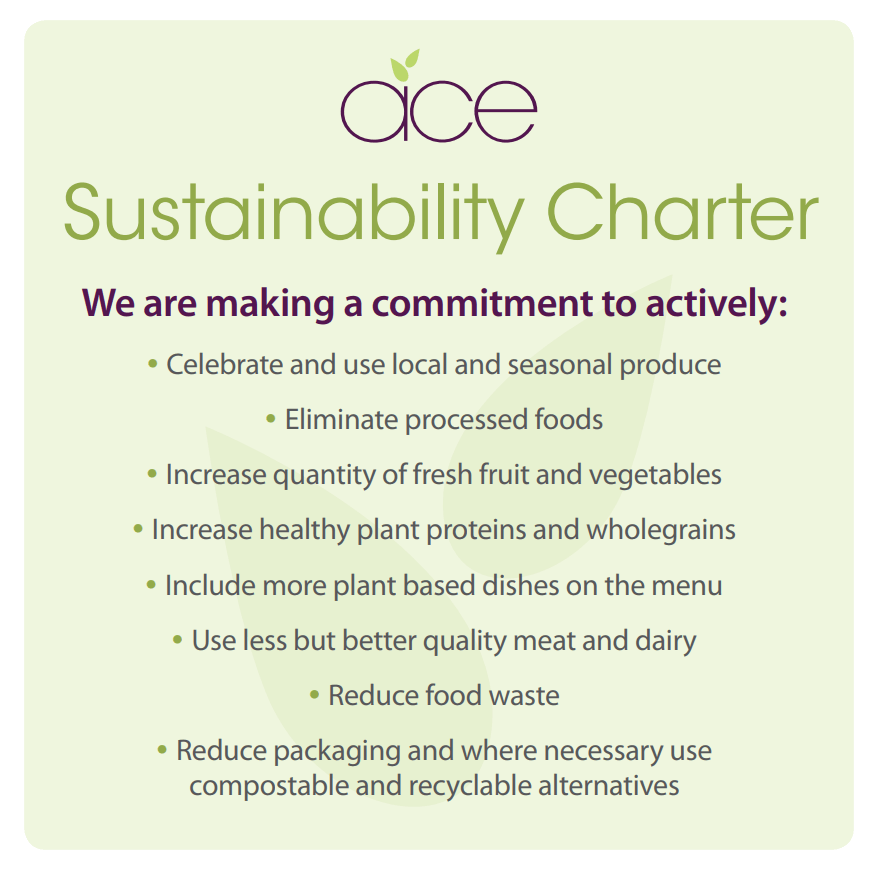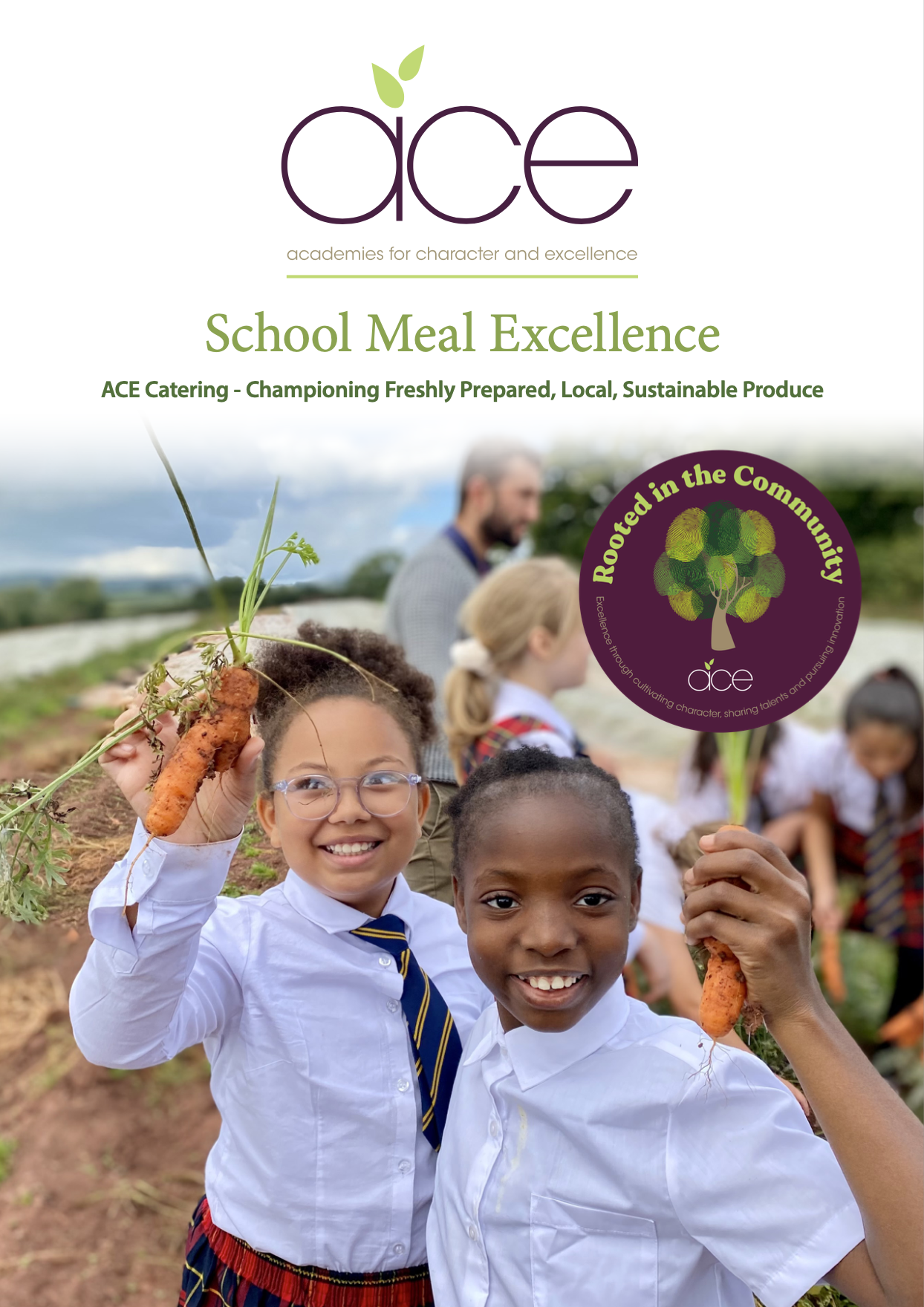Sam Ward has worked in school catering since 2006 and is recognised as a leader in providing quality school meals sourced from local suppliers. She is passionate about sourcing British food and has many tips to share. She is a member of the Love British Food Schools Working Group.

Sam holds a BSc (hons) in Hotel, Catering and Institutional Management and has worked for over 15 years in educational catering. During this time, Sam also freelanced with Focus on Food giving practical advice and support on implementing food education in the primary curriculum. Following an early career in hotel and events catering Sam entered the school food industry in 2006, initially taking on the challenge of moving Collaton St Mary Primary Schools meals service in house. Sam also supported other schools locally on a consultancy basis taking their school meal provision.
Tell us about your role & achievements?
I started at Collaton St Mary Primary school in 2006 as a kitchen manager, and now I am part of the Central Services Team for the Academies for Character and Excellence (ACE). I manage the catering service across ACE and currently oversee 5 in-house provisions, a transported service and 1 external contract. Life is never dull! ACE is a growing Trust, which will compromise of 8 schools in April.
It is extremely exciting that all schools within the Trust are enrolled onto the Food For Life Programme and working towards the next stage in their Food for Life journey.
I am passionate about school food, feeding our pupils well, food education and community partnerships. I love the diversity of my role, both the challenges and achievements it brings; whether it be setting strategic direction, supporting food lessons or working on community projects.
I was a proud member of Jeanette Orrey's national Food for Life Cooks Network and some of my achievements include:
- Food for Life Gold Award- First Gold School in the South West
- Taste of the West Award – best local school food – championing local food – several years running
- Devon Life – School cook of the year
- Educatering of Excellence – In-house Primary caterer of the year
- HITS – Health in Torbay schools award
- BBC Food and Farming finalist
- Elected to represent the school food industry cooking in the houses of parliament during national school meals week with LACA
- Won the Food For Life Peter Melchett Award at Totnes St Johns Primary for excellence in the whole school approach.
School Meal Excellence
At ACE we recognise that our schools are on the frontline of efforts to improve childhood nutrition and our collective health. Improving the meals that our pupils eat in schools is an important step to achieve that goal.
We pride ourselves on a high-quality in-house catering provision working closely with local suppliers to ensure we use as much local, seasonal, British and organic produce where we can. We see this as an important investment in our children and their future health and well-being.
Our meal costs on average £1.10, but with rising food prices, services and staff costs the government do need to look at and increase the UIFSM amount to schools.
Our talented ACE Catering teams work together to achieve positive outcomes for our pupils and collaborate with their local communities. Through improving school meals, we are not only providing important nutritional assistance, but are also helping pupils to be better equipped to feed their minds.
Is sustainability important?
We are making positive steps to manage energy, water and waste. Through the Trusts sustainable catering charter we are actively increasing local and seasonal produce.
The launch of our ‘planet plate meals’ went down really well with pupils and families. I worked closely with our local butcher MC Kelly to produce a ‘planet plate mix’ where we use local meat from local ‘Farm Wilder’ farms which have higher welfare standards and farm regeneratively to improve biodiversity and the environment. We reduce the meat content in favour of quality plant protein and pulses. In doing this we help combat climate change by reducing carbon emissions and global warming. They are tasty too!
My aspirational aim is to transform school food culture across the academies for Character and Excellence by becoming a nationally recognised sustainable school catering service. We would achieve this by offering fresh, tasty, healthy meals prepared by exceptional teams. We will also add value to our schools through operating community projects, teaching practical life skills thereby creating healthy communities.

Why did you agree to sit on the new Love British Food Schools Working Group?
I am thrilled to be a part of this group as I passionately support our local British Farming industry and local producers and suppliers. All our in-house school kitchens across the Academies for Character and Excellence enjoy preparing tasty school meals using British, local and seasonal produce. Higher welfare standards, quality assurances, less food miles and supporting our local economy are some of the reasons we are proud to #BuyBritish. It is important to us as a catering service and an important part of our sustainable school meals food charter.
As an educational Trust, we align ourselves with the ethos of 'Love British Food'. We want our pupils to believe they can make a positive difference to themselves and others. We educate our pupils about where their food comes from, the importance of buying and cooking seasonally and locally. We endeavour to reconnect them with their environment and nature through regular farm visits.
Collaboration and partnerships
Collaboration and Partnerships are important to us, and I am passionate about championing local producers across the South West. A key part of this is working together and communicating regularly so my suppliers understand our needs and we work together to get the price and product right.
More recently, I have had conversations with The South West Food Hub –this is an organisation supporting the region’s food network to buy and sell locally, establishing shorter and more sustainable supply chains.
Devon has such a wealth of amazing producers due to its lush farming grasslands, moorland and coastal waters. Aside from tasting better, using local produce is better for the environment as it cuts down on our food miles - so everyone is a winner!
LOCAL IS BEST – highlighting suppliers
Savona Southwest - Savona Foodservice Southwest is based in Ilfracombe North Devon
They aspire to procure as much regional produce as possible to offer our customers locally supported ranges with our carbon footprint always at the forefront of our minds. They are members of the Soil Association and are regularly audited to ensure product integrity and they offer a wide range of locally sourced organic produce.
McKelly – based in Crediton
M C Kelly Ltd have worked with ACE to develop the planet plate mix. It is an ongoing opportunity to understand the direction school food is going in.
“ACE, I believe are ahead of the curve with healthy school meals and we have learnt a lot during this collaboration. We embrace the concept of “less and better” with meat. Children; in the main; love meat and using the flavour of top-quality regenerative meats to carry the vegetable element of these dishes is a great way to promote genuinely healthy balanced diets and respecting the meats we supply.”
Andy Gray – Director, MCKelly ltd, Crediton, Devon
Total Produce – based in Devon
Total Produce believe in supporting local farmers and using as much local produce as possible when available.
“We are in regular communications with Sam and her team, ensuring we highlight produce that is seasonal, local and British. It is important with us that we work with schools in this way as appreciate budgets are tight”.
Justin Yeates – Branch Manager Total Produce Devon
Brixham Seafish
Brixham Seafish totally believe in supporting the local community and using what they can from the local fishing fleet.
“We are pleased Sam and her team are committed to use local fish. At Brixham Seafish we have recently been given MSC approval and the local Hake fishing boats are also MSC accredited therefore when buying from these boats we are ensuring a conscious effort is being made.”
Josh Perkes – Director Brixham Seafish
Sam’s Top Tips
- Work actively with suppliers and ask what produce they sell that is local, seasonal and British. Often local or seasonal is cheaper!
- Add wording ‘local seasonal veg’ to menus so your kitchen managers have the autonomy to liaise with their veg supplier.
- Engaging pupils and parents is key – ensure you let them know where the food comes from, what local produce you are using and be proud of it!
- Provide taster tables for pupils so they can try things first – we did this with our planet plate meals and even got the children involved in making dishes!
- Create a fun themed yearly food calender so pupils look forward to themes and can learn at the same time. This helps pupils to expand palates, encourage new flavours and try new foods.
- Draw up a sustainable charter so you make a point of encouraging less waste. Constantly think of clever ways to re-use ingredients.
- Treat lunchtime as another lesson in the school day - label and name seasonal veg on display.
- Engage with your growing club or teachers to ensure that your school-grown produce finds its way to the kitchen! I love the joy on pupils’ faces when they see what they have grown!
How ACE helped Devon schools take part in British Food Fortnight 2022
ACE British Food Fortnight Recipe Book
Share:
You may also be interested in...















